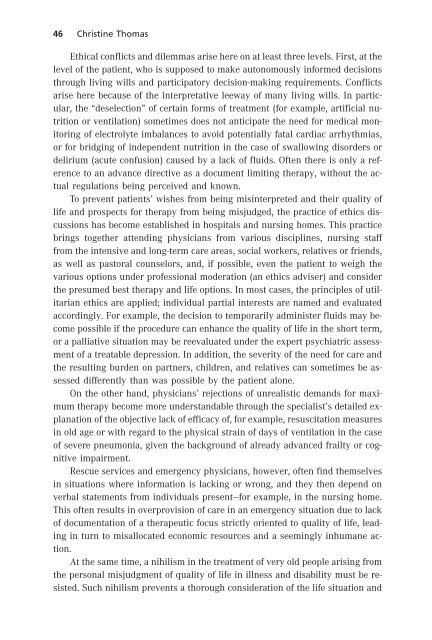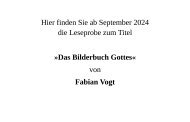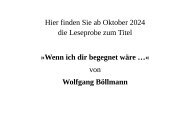Michael Welker | Eva Winkler | John Witte, Jr. | Stephen Pickard (Eds.): The Impact of Health Care (Leseprobe)
Pluralism has become the defining characteristic of many modern societies. Not only a plurality of individual and social claims and activities gain impacts on societal life. A creative pluralism of institutions and their norms profoundly shape our moral commitments and character – notably the family, the market, the media, and systems of law, religion, politics, research, education, health care, and defense. In the theoretical, empirical, and historical contributions to this volume, specialists on medicine, medical ethics, psychology, theology and health care discuss the many challenges that major transformations in their areas of expertise pose to the communication and orientation in late modern pluralistic societies. Contributors come from Germany, the USA and Australia.
Pluralism has become the defining characteristic of many modern societies. Not only a plurality of individual and social claims and activities gain impacts on societal life. A creative pluralism of institutions and their norms profoundly shape our moral commitments and character – notably the family, the market, the media, and systems of law, religion, politics, research, education, health care, and defense.
In the theoretical, empirical, and historical contributions to this volume, specialists on medicine, medical ethics, psychology, theology and health care discuss the many challenges that major transformations in their areas of expertise pose to the communication and orientation in late modern pluralistic societies. Contributors come from Germany, the USA and Australia.
Create successful ePaper yourself
Turn your PDF publications into a flip-book with our unique Google optimized e-Paper software.
46 Christine Thomas<br />
Ethical conflictsand dilemmas arise here on at least threelevels. First, at the<br />
level <strong>of</strong> the patient, who is supposed to make autonomously informed decisions<br />
through living wills and participatory decision-making requirements. Conflicts<br />
arise here because <strong>of</strong> the interpretative leeway <strong>of</strong> many living wills. In particular,<br />
the “deselection” <strong>of</strong> certain forms <strong>of</strong> treatment (for example, artificial nutrition<br />
or ventilation) sometimes does not anticipate the need for medical monitoring<br />
<strong>of</strong> electrolyte imbalances to avoid potentially fatal cardiac arrhythmias,<br />
or for bridging <strong>of</strong> independent nutrition in the case <strong>of</strong> swallowing disorders or<br />
delirium (acute confusion) caused by alack <strong>of</strong> fluids. Often there is only areference<br />
to an advance directive as adocument limiting therapy, without the actual<br />
regulations being perceived and known.<br />
To prevent patients’ wishes from being misinterpreted and their quality <strong>of</strong><br />
life and prospects for therapy from being misjudged, the practice <strong>of</strong> ethics discussions<br />
has become established in hospitals and nursing homes. This practice<br />
brings together attending physicians from various disciplines, nursing staff<br />
from the intensive and long-term care areas,socialworkers, relatives or friends,<br />
as well as pastoral counselors, and, if possible, even the patient to weigh the<br />
various options under pr<strong>of</strong>essional moderation (an ethics adviser) and consider<br />
the presumed best therapy and life options. In most cases, the principles <strong>of</strong> utilitarian<br />
ethics are applied; individual partial interests are named and evaluated<br />
accordingly. For example, the decision to temporarily administer fluids may become<br />
possible if the procedure can enhance the quality <strong>of</strong> life in the short term,<br />
or apalliative situation may be reevaluated under the expert psychiatric assessment<br />
<strong>of</strong> atreatable depression. In addition, the severity <strong>of</strong> the need for care and<br />
the resulting burden on partners, children, and relatives can sometimes be assessed<br />
differently than was possible by the patient alone.<br />
On the other hand, physicians’ rejections <strong>of</strong> unrealistic demands for maximum<br />
therapy become more understandable through the specialist’s detailed explanation<br />
<strong>of</strong> the objective lack <strong>of</strong> efficacy <strong>of</strong>, for example, resuscitation measures<br />
in old age or with regard to the physical strain <strong>of</strong> days <strong>of</strong> ventilation in the case<br />
<strong>of</strong> severe pneumonia, given the background <strong>of</strong> already advanced frailty or cognitive<br />
impairment.<br />
Rescue services and emergency physicians, however, <strong>of</strong>ten find themselves<br />
in situations where information is lacking or wrong, and they then depend on<br />
verbal statements from individuals present—for example, in the nursing home.<br />
This <strong>of</strong>ten results in overprovision <strong>of</strong> careinanemergency situation due to lack<br />
<strong>of</strong> documentation <strong>of</strong> atherapeutic focus strictly oriented to quality <strong>of</strong> life, leading<br />
in turn to misallocated economic resources and aseemingly inhumane action.<br />
At the same time, anihilism in the treatment <strong>of</strong> very old people arisingfrom<br />
the personal misjudgment <strong>of</strong> quality <strong>of</strong> life in illness and disability must be resisted.<br />
Such nihilism prevents athorough consideration <strong>of</strong> the life situation and
















